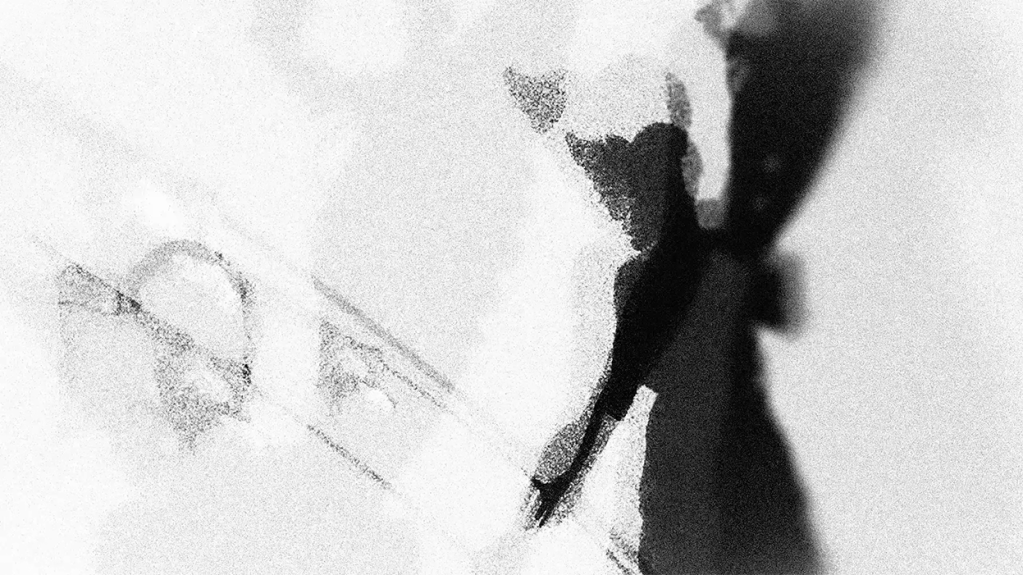
Shirley Jackson’s 1949 short story, The Witch, is one of my favourite things. Here’s why.
A while back, I shared a short essay about our long-standing cultural antipathy for children, evidenced by the sorts of stories we tell ourselves about them.
Entitled Tomorrow Belongs To Me, I used Michael Hanaeke’s chilly, ambiguous The White Ribbon (2009) as the entry point into a broad examination of narratives in which children are deployed by storytellers for uncanny effect. If the cognitive mechanism of the uncanny requires the uneasy thing in question to first be a familiar thing, little wonder children serve this purpose so well. We were all children once, so know their universes intimately. We purport to be surprised, shocked even, when children are strange or wayward or cruel, but this can only be rank hypocrisy. We were all strange and wayward and cruel once, and I think we know this very well. Why else would these stories resonate so?
In Jackson’s The Witch, a humdrum scenario tilts suddenly towards menace, as a little boy, his baby sister, and his mother are joined in a railway carriage by a talkative stranger, an older gentlemen with white hair and a cigar. Horror follows the mother’s realisation that the avuncular stranger engaging her fearless young son is talking, no longer about lollipops, rocking horses or dolls, but about the time he murdered and mutilated his own sister. Jackson’s ambitions are more complex than mining a mother’s fear of harm being done to her child by the attentions of a stranger. Certainly, the mother in Jackson’s story is afraid for her son, but as the story concludes, she is afraid of him too. She understands the boy is not afraid, enthralled instead by the stranger’s confession of spectacular violence, delighted by its savagery.
At the story’s end, with the white haired man sent packing and equilibrium seemingly restored, I think Jackson wants her readers to worry for the safety of the boy’s baby sister, the man’s story about separating out the body parts of his own sibling having produced an abstraction in the boy’s mind, turning all baby sisters into playthings, into unfeeling collections of bits. No, not produced, which suggests this abstraction wasn’t there before. I really mean ‘confirmed’ or ‘encouraged’ or ‘promoted’, for it is my experience of childhood and young children that it is the impulse against the pulling off the wings of flies that needs to be cultivated, not the instinct to dismember.
The last line of Jackson’s story has the boy wondering if the old man was ‘a witch’. This reader thinks not – not a witch, and hardly evil in some special way, but a grown-up made threatening by an act as simple as acknowledging the violent fantasies common to ordinary children. While the stranger on the train has white hair and smokes a cigar, he talks like a child. You need only look at his choice of language – ‘pinching’, not strangling – like a child who can envision the act itself, but lacks the apposite vocabulary to call it what it is. Consider the patent absurdity of the way the remembered acts of violence against the man’s kid sister escalate, suggestive at once of the way children compete with each other in the fabrication of ever more sensational details. Consider too, how the acts of violence themselves recall more convincingly the destruction, not of flesh, blood and bone, but of plasticky doll-parts and nylon plugs of hair. The horror here is not that the man on the train is a wicked old witch in a separate category of his own, malfeasant because he is different from the rest of us. The horror is that the old man’s wickedness returns us to the viciousness of children at play.
“I bought her a rocking-horse and a doll and a million lollipops,” the man said, “and then I took her and put my hands around her neck and I pinched her and I pinched her until she was dead.”
The little boy gasped and the mother turned around, her smile fading. She opened her mouth, and then closed it again as the man went on,
“And then I took and I cut her head off and I took her head—“
“Did you cut her all in pieces?” the little boy asked breathlessly.
“I cut off her head and her hands and her feet and her hair and her nose,” the man said, “and I hit her with a stick and I killed her.”
“Wait a minute,” the mother said, but the baby fell over sideways just at that minute and by the time the mother had set her up again the man was going on.
“And I took her head and I pulled out her hair and—“
“Your little sister?” the little boy prompted eagerly.
“My little sister,” the man said firmly. “And I put her head in a cage with a bear and the bear ate it all up.”
Something about The Witch puts me in mind of the quick moment of spite that ruined Mary Bale’s life, when she dropped someone’s cat into a wheelie bin – for no other reason except it took her fancy. Outrage ensued and a witch hunt commenced, Bale described as wicked, as evil, and as a menace to polite society, her act of spite suggestive of some uglier psychological dysfunction. While I am in no way defending Bale’s crimes against kittydom, I’ve never been able to muster the same levels of shock. If you’ve got siblings, you’ll know very well how it’s possible to hurt another living thing just because it comes into your head to do so. Is anyone entirely ‘ancedote-free’ when it comes to admissions of random cruelties – a kicked dog, a loosed barb, a vengeful thought? What we find objectionable about Bale’s actions is seeing the lawlessness of childhood resurfacing in an adult. This is what pulling off the wings of flies looks like when you’re big and ugly enough to know better. Mary Bale repels us because it is in our interest to feel repulsion; better that than kinship, better that than the sneaking suspicion we ourselves are as capable of similar spite. In this, Mary Bale is one of Shirley Jackson’s people. She lives on one of Shirley Jackson’s neat and tidy streets behind respectably white net curtains, and, in common with Jackson’s stranger on the train, Mary Bale isn’t a wicked witch either. Probably.

CCTV pictures of the moment Mary Bale dropped a cat into a wheelie bin
When I was young, I can’t remember how young, my mother and I went to a UK theme park on a day out. I remember the weather being sunless and cold, but not much else about why we were there. My big interest was in the theme park’s elaborate ghost train, and because the weather was sunless and cold, I was able to go on the ghost train many times in quick succession without the faff of queuing. The final time I wanted to ride the ghost train, my mother very reasonably refused to put herself thought it again, so I went unaccompanied. On this last trip through the haunted mansion, I was joined in my snug, two-seater wagon by a man I didn’t know. I don’t recall finding this odd, largely, I expect, because I was looking forward to the ride ahead of me, to its impressive vignettes of dancing Georgian corpses and giant spider.
Not long after the ghost train had lurched off into the strictly stage-managed surprises of its Grand Guignol interior, the man beside me began touching me – not sexually, but violently. I cannot now separate what was overwhelming about the ride itself, with all its phantoms, clanks and hoots, and what I must have surely felt at finding myself trapped on a ghost train with an adult man who was hitting me for no reason I could discern. More clear, is my memory of the moment the ride stopped dead and all the emergency lights came on, revealing the impressive vignettes of dancing Georgian corpses and giant spiders to be mundane and unspecial. I remember someone appearing suddenly to pluck the man from the seat beside me. I recall getting off the ghost train afterwards and being happy to see my mum, who, bored, cold and smoking a cigarette, was waiting for me outside. I don’t recall being particularly upset. I don’t recall telling my mum what happened on the ghost train – not then. I kept what happened a secret, which is the way of big strong boys everywhere I suppose. I don’t recall if we went and sat somewhere to eat an over-priced donut, the wind pilfering our napkins, but if we did, I suspect I sat as close to my mum as might be considered seemly in a boy of whatever age I was back then on that grey, sunless day.
When I read Shirley Jackson’s The Witch, I think about the man on the ghost-train, and I wonder if I met a monster that day, the sort of monster who once fed his own sister’s head to a bear. Years after our day trip to the theme park, my mother would admit her biggest fear for me, as a small boy, was I would be abducted, molested and murdered by one of those men in long rain coats famed for hanging around children’s playgrounds, their pockets sugary with sweets and wriggling with puppies. This is surely the primal fear of all mothers for their roughty-toughty boys made otherwise gamine and come-hither by dint of their credulousness and youth. Even so I’ve wondered since what it might have been about the exact configuration of my own face that should have made me so worryingly a magnet for lurking paedophiles. The little boy in Jackson’s short story is actively looking for witches. I was a child like that, going round and round on ghost trains, delighted. The little boy in Jackson’s story delights in every macabre detail of the old man’s story. I was a child like that, in so much as I never hid behind the sofa while watching Doctor Who. The mother in Jackson’s story is afraid for her child, as my mother was afraid for me. The mother in Jackson’s story worries a boy who goes looking for witches might find them, and also like my mother, worries some ineffable quality in her son invites them closer.






Leave a comment